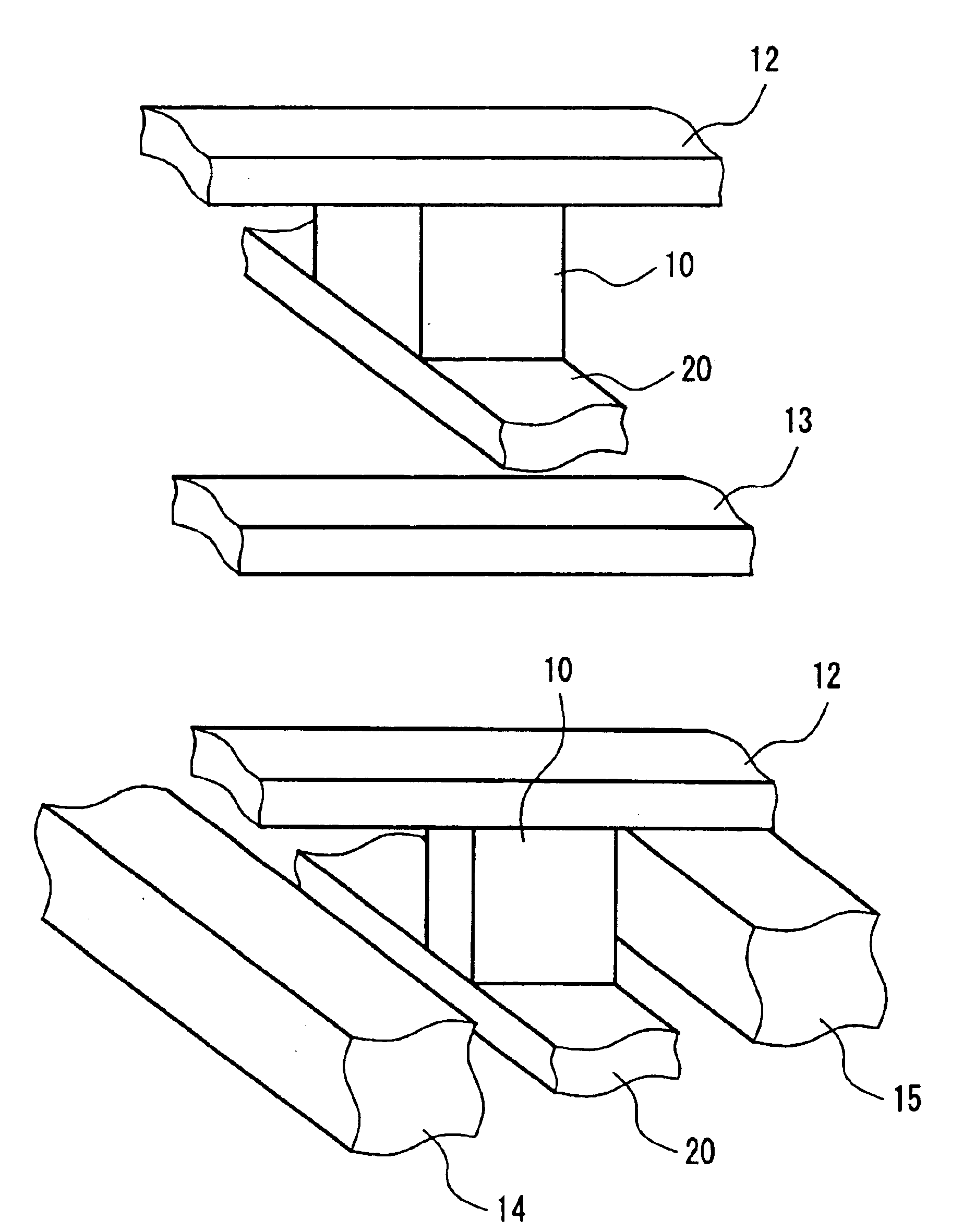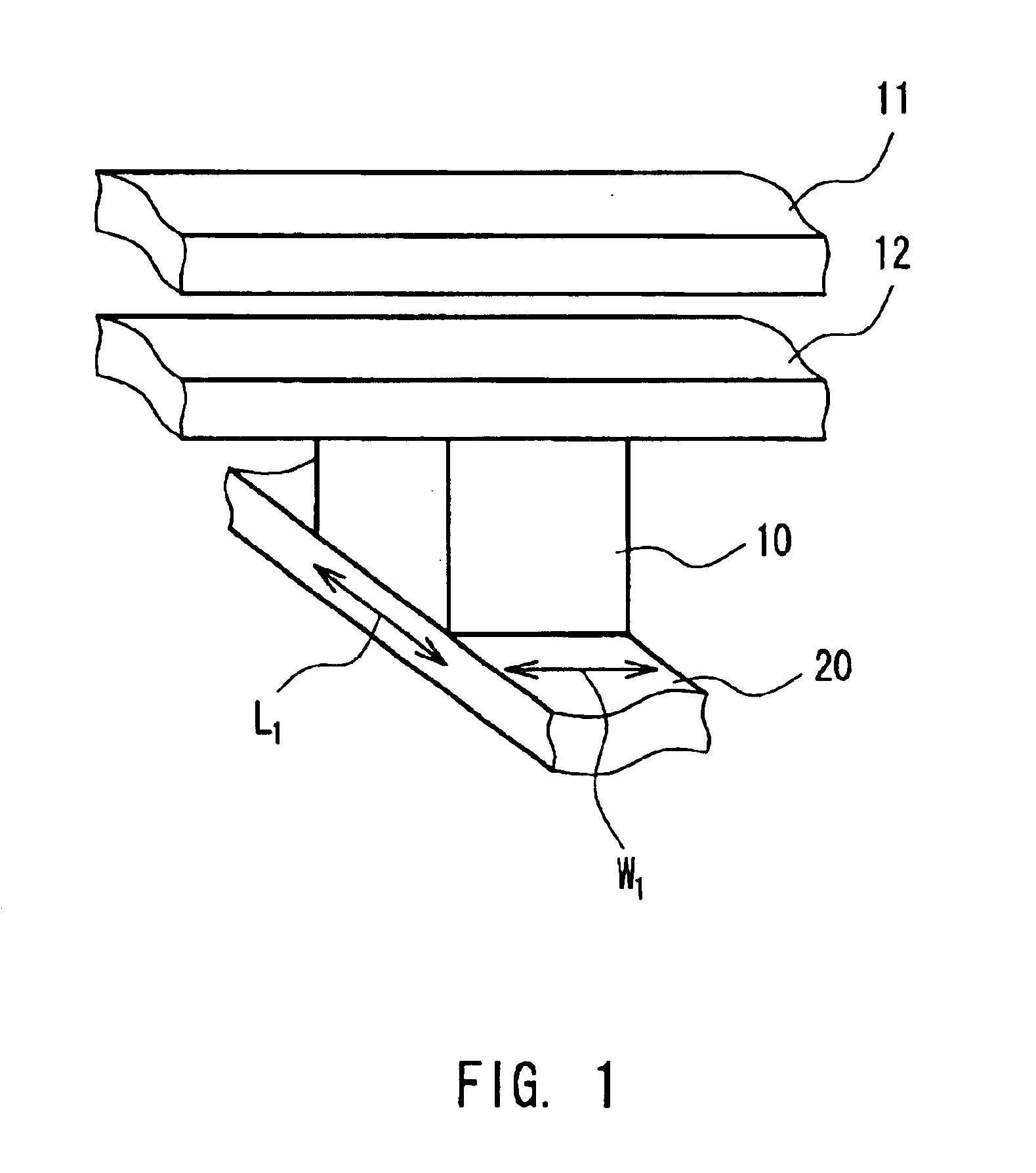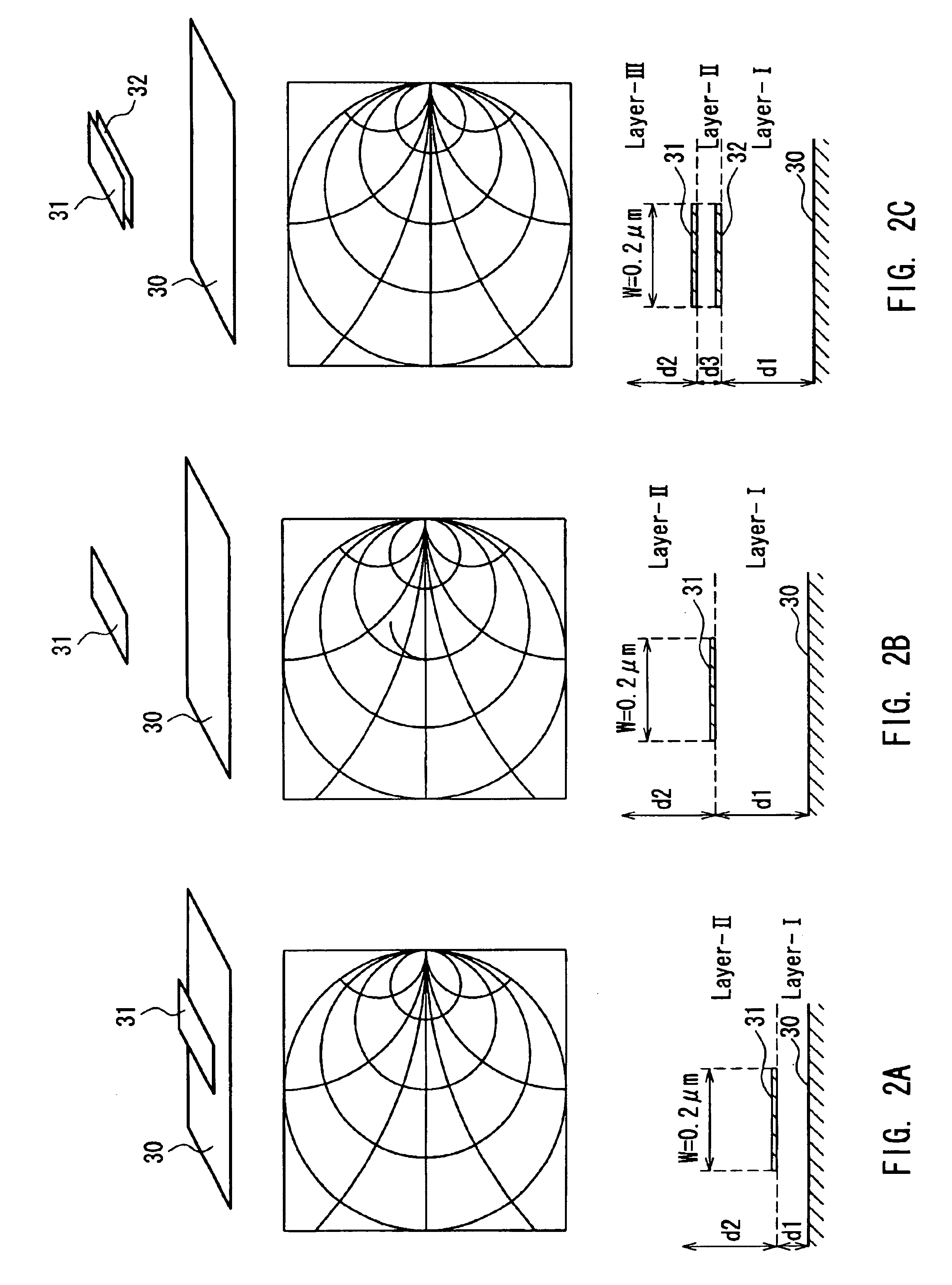Magnetoresistive memory with a wiring for suppressing crosstalk
a magnetic memory and wiring technology, applied in the field of magnetic memory with a wiring for suppressing crosstalk, can solve the problems of insufficient suppression of crosstalk, limit of impedance matching of conventional word lines, etc., and achieve the effect of suppressing crosstalk, efficiently applying magnetic field, and suppressing leakage magnetic field
- Summary
- Abstract
- Description
- Claims
- Application Information
AI Technical Summary
Benefits of technology
Problems solved by technology
Method used
Image
Examples
example 1
Using a multi-target sputtering apparatus, a MR element with the multi-layer structure shown in FIG. 19F was produced. This MR element has the following film configuration:
Ni.sub.0.81 Fe.sub.0.19 (2) / Ru(0.7) / Ni.sub.0.81 Fe.sub.0.19 (3) / Al.sub.2 O.sub.3 (1.2) / Cu.sub.0.75 Fe.sub.0.25 (2) / Ru(0.7) / CO.sub.0.75 Fe.sub.0.25 (2) / PtMn(20).
Here, the films are arranged in the order mentioned from the top to the bottom of the element, and the figures in parentheses denote the film thickness (nm).
This example uses two types of Al.sub.2 O.sub.3 layer, each of which serves as a tunnel insulating layer. The type A was prepared by forming an Al film with sputtering and oxidizing the Al film. The type B was prepared by depositing Al.sub.2 O.sub.3 itself with sputtering. The type A was oxidized in any one of the following manners: natural oxidation in a vacuum vessel, natural oxidation in a vacuum vessel with increased temperature, and oxygen-containing plasma oxidation in a vacuum vessel. In either c...
example 2
MRAMs that differ in the arrangement of word lines as shown in FIGS. 20A to 20F were produced in the same manner as Example 1. The word line included a signal line 91 and passive lines 92, 93. The passive line 92 and the signal line 91 sandwiched a MR element (not shown), and the passive line 93 and the signal line 91 were formed in the same plane. In FIGS. 20A to 20F, the signal line and the MR element have one-to-one correspondence.
Both the signal line 91 and the passive line 92 had a width of 0.2 .mu.m. In each of the MRAMs, the distance between a lower ground plane 100 and the closest conductive wires 91 to 93 was 100 .mu.m, and the distance between an upper ground plane (not shown) and the signal line 91 was 100 .mu.m.
A population of 1000 samples for each of the MRAMs was evaluated based on the malfunction of unselected memories that were adjacent to the word line through which signals constituting one word were sent. Table 1 shows the results. In Table 1, d represents a space ...
example 3
A MRAM was produced in the same manner as Example 1. In this example, the MRAM included a conductive wire 33 between adjacent MR elements other than a pair of conductive wires 31, 32, as shown in FIG. 8D.
The transmission of a pulse signal to the word lines 31 to 33 was evaluated with the MRAM. Each of the word lines had a width of about 0.5 .mu.m and a thickness of about 0.3 .mu.m, and the distance between the adjacent word lines was about 0.3 .mu.m. The terminal resistance was connected to either end of the wiring, and the characteristic impedance was adjusted to about 75 .OMEGA..
Under the input conditions that the time required for the applied pulse to rise from 1V to 5V was 1 ns and the transmission time (the length of the wiring was about 10 cm) was 0.5 ns, it took the signal 1 ns to rise. Compared with a single word line, the signal was not reflected significantly at the near end and the far end of the word lines when viewed from the pulse sending side.
Next, the effect of cross...
PUM
 Login to View More
Login to View More Abstract
Description
Claims
Application Information
 Login to View More
Login to View More - R&D
- Intellectual Property
- Life Sciences
- Materials
- Tech Scout
- Unparalleled Data Quality
- Higher Quality Content
- 60% Fewer Hallucinations
Browse by: Latest US Patents, China's latest patents, Technical Efficacy Thesaurus, Application Domain, Technology Topic, Popular Technical Reports.
© 2025 PatSnap. All rights reserved.Legal|Privacy policy|Modern Slavery Act Transparency Statement|Sitemap|About US| Contact US: help@patsnap.com



